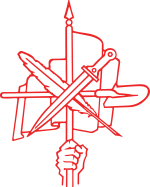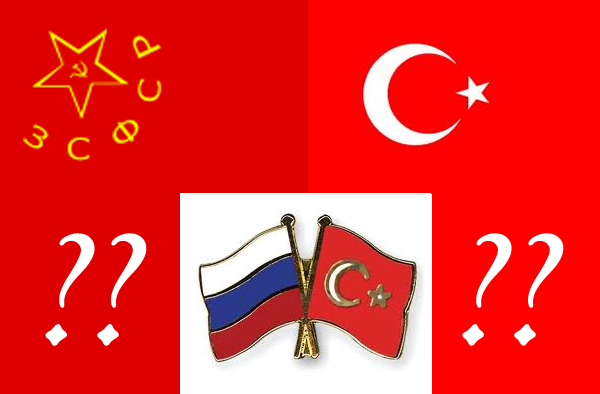 The 90th anniversary of the signing of the notorious treaty between the Russian Socialist Federative Soviet Republic and the Government of the Turkish Grand National Assembly on March 16, 1921, is being marked. The parties of this treaty, in violation of the basic principles and norms of international law, without the participation and consent of the Armenian party, decided to donate to Turkey the province of Kars and the region of Surmalu, and to hand over Nakhijevan as an autonomous “territory” to the protectorate of Azerbaijan.
The 90th anniversary of the signing of the notorious treaty between the Russian Socialist Federative Soviet Republic and the Government of the Turkish Grand National Assembly on March 16, 1921, is being marked. The parties of this treaty, in violation of the basic principles and norms of international law, without the participation and consent of the Armenian party, decided to donate to Turkey the province of Kars and the region of Surmalu, and to hand over Nakhijevan as an autonomous “territory” to the protectorate of Azerbaijan.
In the treaty of Moscow, the clauses on Armenia are in gross violation of international law, as treaties can only pertain to the parties to the treaty and cannot create any obligations or rights for a third party not party to the treaty without its consent.
In addition, at the time of signing of the treaty, the Russian Socialist Federative Soviet Republic was not a recognized state, and therefore not a subject of international law and, naturally, its government had no authority to enter into international treaties.
As for the so-called “government of the Grand National Assembly of Turkey” representing the Turkish side, it was merely a non-governmental entity in circumstances where Turkish legal authorities existed. Furthermore, the Turkish side acted on behalf of Mustafa Kemal, who at the time was a criminal on the run, sentenced to death by the Turkish military court and the highest clergyman of the empire.
Thus, based on the above-mentioned facts, the Moscow Treaty is illegal and, according to international law, is invalid. Hence, the Republic of Armenia should declare that it does not recognize the treaty signed in Moscow on March 16, 1921, and the October 13, 1921, treaty of Kars, based on the latter and forced upon the Bolshevik rulers of Armenia, is null and void.
Simultaneously, the Republic of Armenia must immediately withdraw from the Armenian-Turkish protocols, which the Turkish side is using to retroactively legitimize the Lenin-Ataturk criminal transaction. Also, the fact that – on the backdrop of renewed agreements of Russian-Armenian strategic partnership and the assurances of strengthening and development of the traditional friendly relations between our two peoples – during these days which mark the 90th anniversary of the signing of the above-mentioned illegal and anti-Armenian treaty, the High-Level Cooperation Council between Russia and Turkey is holding a meeting in Moscow raises concerns.
Surely, bilateral relations can provide basis for friendship, if they are based on justice and not directed against third parties.
ARF-DASHNAKTSUTYUN SUPREME COUNCIL OF ARMENIA
March 15, 2011
Ninety Years of Injustice: Armenia to mark anniversary of Russia-Turkey agreement with protests
By ARIS GHAZINYAN
ArmeniaNow reporter
ArmeniaNow.com
ANALYSIS | 15.03.11
On March 16, an act of protest will be held in front of the Russian embassy in Armenia. However this time it won’t be an opposition rally but rather a protest by representatives of those social strata that every year this day recall the agreement signed in Moscow on “Friendship and Brotherhood” between Soviet Russia and Turkey, curtailing Armenian lands in favor of Turkey and Azerbaijan. This year marks 90 years since that fateful day for Armenia.
The Moscow agreement of March 16, 1921, expanded Azerbaijan’s and Turkey’s territories at the expense of Armenian lands. Nakhijevan was given to Azerbaijan, and Turkey came into possession of Kars and Sumali. The Moscow agreement outlined the current Armenian-Turkish border, with transfer of Armenian’s Biblical mount Ararat to Turkey.
However, the reason for the protest is not only that sad anniversary but also the fact that Moscow and Ankara intend to mark the day with a special session of the Russian-Turkish Cooperation Council.
Within the framework of the event, Russian president Dmitri Medvedev will be meeting Turkish Prime-Minister Recep Tayyip Erdogan 16 to discuss the prospects for political and economic development of the two states.
Protestors intend to direct Russian diplomats’ attention to the fact that exactly 90 years ago such discussions led to seizure of Armenian lands followed by Nagorno-Karabakh’s transfer to Azerbaijan.
“The date of the Turkish prime-minister led delegations’ visit to Russia was selected deliberately and is timed to the 90th anniversary of the Moscow agreement,” stated Vahan Hovhannesyan, head of the Revolutionary Federation of Armenia Dashnaktsutyun parliamentary faction.
Speaking about the Moscow agreement Hovhannesyan reminded that this illegal and disgraceful document giving away Armenian lands was signed by Russia behind Armenia’s back and without its knowledge or participation, and Russia had no such right.
“In this case the key point is that Russia – Armenia’s so-called strategic partner –respects neither the feelings of the Armenian nation, nor the Armenian authorities since it is marking the 90th anniversary together with Turkey,” says Hovhannesyan.
Indeed, many become increasingly aware of the fact that Russia as Armenia’s main strategic partner could have chosen a different day to hold the high-level negotiations with Turkey. Holding the meeting on that tragic anniversary is perceived by Armenians as rubbing salt in the wound.
Participants of the March 16 protest – Nikol Aghbalyan student council, the youth branch of Dashnaktsutyn party, and the National Youth Council of Armenia – will march from Stepan Shahumyan Square to the Russian Embassy in Armenia.








